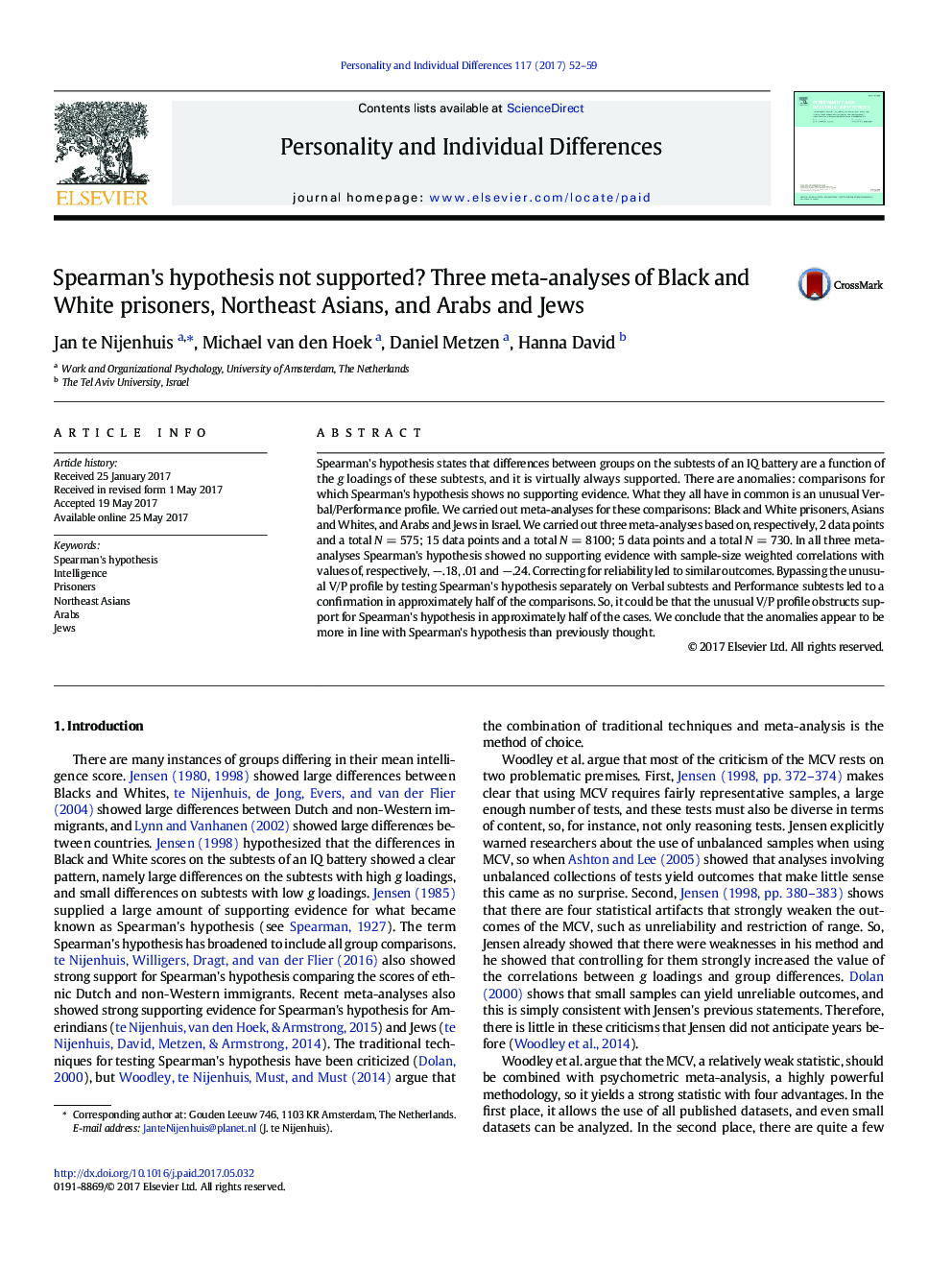| Article ID | Journal | Published Year | Pages | File Type |
|---|---|---|---|---|
| 5035976 | Personality and Individual Differences | 2017 | 8 Pages |
â¢Spearman's hypothesis: group differences are a function of g-loadedness of subtests.â¢Spearman's hypothesis is tested on prisoners, Northeast Asians, and Jews and Arabs.â¢Three meta-analyses do not support Spearman's hypothesis.â¢Spearman's hypothesis appears to be supported half of the time at level of scales.
Spearman's hypothesis states that differences between groups on the subtests of an IQ battery are a function of the g loadings of these subtests, and it is virtually always supported. There are anomalies: comparisons for which Spearman's hypothesis shows no supporting evidence. What they all have in common is an unusual Verbal/Performance profile. We carried out meta-analyses for these comparisons: Black and White prisoners, Asians and Whites, and Arabs and Jews in Israel. We carried out three meta-analyses based on, respectively, 2 data points and a total NÂ =Â 575; 15 data points and a total NÂ =Â 8100; 5 data points and a total NÂ =Â 730. In all three meta-analyses Spearman's hypothesis showed no supporting evidence with sample-size weighted correlations with values of, respectively, â.18, .01 and â.24. Correcting for reliability led to similar outcomes. Bypassing the unusual V/P profile by testing Spearman's hypothesis separately on Verbal subtests and Performance subtests led to a confirmation in approximately half of the comparisons. So, it could be that the unusual V/P profile obstructs support for Spearman's hypothesis in approximately half of the cases. We conclude that the anomalies appear to be more in line with Spearman's hypothesis than previously thought.
